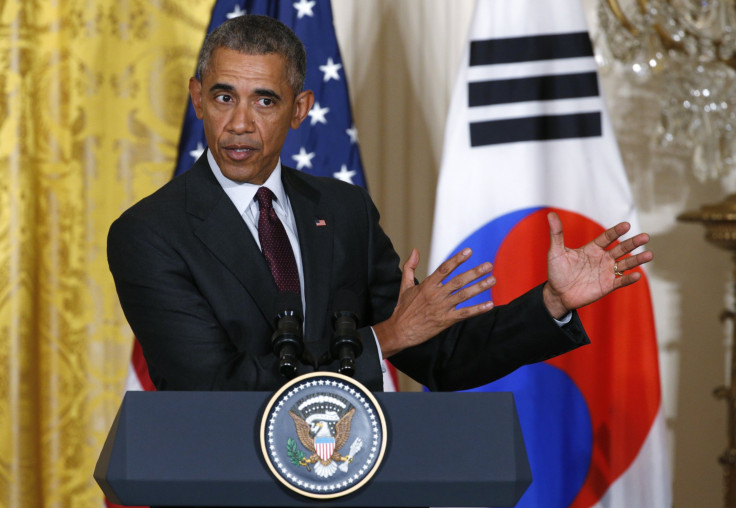Is Obama Responsible For Letting North Korea Test A Nuclear Bomb? Republicans Attack The White House

For some Republican presidential candidates, the Wednesday announcement that North Korea had conducted a hydrogen bomb test was a clear sign that President Barack Obama and his former chief diplomat, Hillary Clinton, have been failures in the foreign policy realm. But, while the administration hasn’t made many inroads with the isolated Asian nation, the criticism neglects to metion the two decades of complicated and shaky relations between North Korea and U.S. administrations from both sides of the aisle.
“Of course North Korea would conduct a nuclear test after watching Iran willfully violate an agreement they made without consequence of any kind from this administration,” former Hewlett-Packard CEO Carly Fiorina wrote Wednesday on Facebook, referencing the recent nuclear agreement forged with Iran in exchange for lifted sanctions. “North Korea is yet another Hillary Clinton foreign policy failure. America cannot lead from behind.”
Fiorina was echoing Florida Sen. Marco Rubio, who has made aggressive foreign policy a hallmark of his campaign. If the tests are confirmed, it shows that Obama isn’t willing to stand up to North Korea leader Kim Jong Un, Rubio wrote in a statement Tuesday night.
Marco Rubio puts out a statement on North Korea's test of a hydrogen bomb pic.twitter.com/inwVeDQNx5
— Ben Jacobs (@Bencjacobs) January 6, 2016
Obama has refused to engage with North Korea out of concern that no agreements can be trusted, and that deep sense of caution is informed by experience. After making nuclear nonproliferation agreements with American administrations in 1994, 2005 and 2012, North Korea simply restarted its proliferation programs.
“The credibility of the process is an important issue," a senior State Department official told Politico in May. “I think it would be a mistake for us to begin any process while the North Koreans are continuing their nuclear activities. The first step needs to be some way for them to suspend their nuclear activities at least while the negotiations are going on.”
North Korea has repeatedly refused to suspend their programs for nuclear talks while Obama, at least publicly, has said as recently as October that he welcomes negotiations with the country if Pyongyang “says we are interested in seeing relief from sanctions and improved relations and we are prepared to have a serious conversation about denuclearization.”
That relationship is different from the situation with Iran, with which the Obama administration and several international allies recently negotiated an anti-nuclear proliferation agreement that many Republicans oppose. Harsh sanctions pushed Iran to agree to suspend its nuclear proliferation programs while negotiations were underway and were a major point of leverage for Western negotiators. The situation would be different for North Korea, analysts have argued, because the country is already very isolated by international trade and financial sanctions. More of the same would likely have a limited effect.
© Copyright IBTimes 2025. All rights reserved.






















